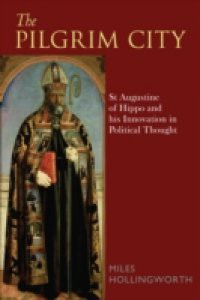In this book Miles Hollingworth investigates how Augustine's understanding of discipleship causes him to resist the normal tendencies of Western political thinkers. On the one hand, he does not attempt to delineate an ideal state in the classical fashion: to his mind, the Garden of Eden can be an archetype for nothing on earth. And on the other hand, he does not seek to achieve an ideological perspective on the proper relations between Church and State. In fact his Pilgrim City is shown to lie beyond utopianism, realism and the normal terms of political discourse. It stands, instead, as a singular challenge to the aspirations of politics in the West; and so standing it calls for a reassessment of his position in the history of political thought. This book will be of interest to theologians as well as historians of political thought. It will also appeal to anyone with an interest in the history of ideas.

